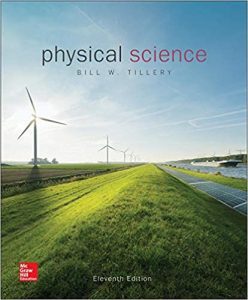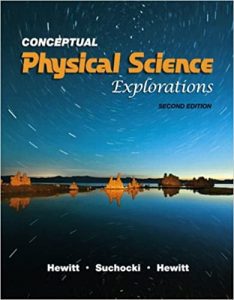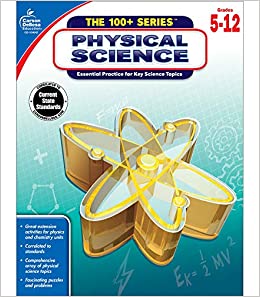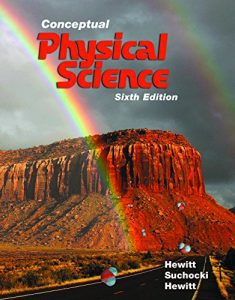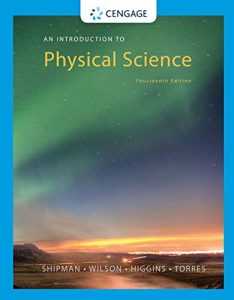The Best Physics & Physical Science Textbook
We looked at the top 6 Physics & Physical Science Textbooks and dug through the reviews from 5 of the most popular review sites including and more. The result is a ranking of the best Physics & Physical Science Textbooks.
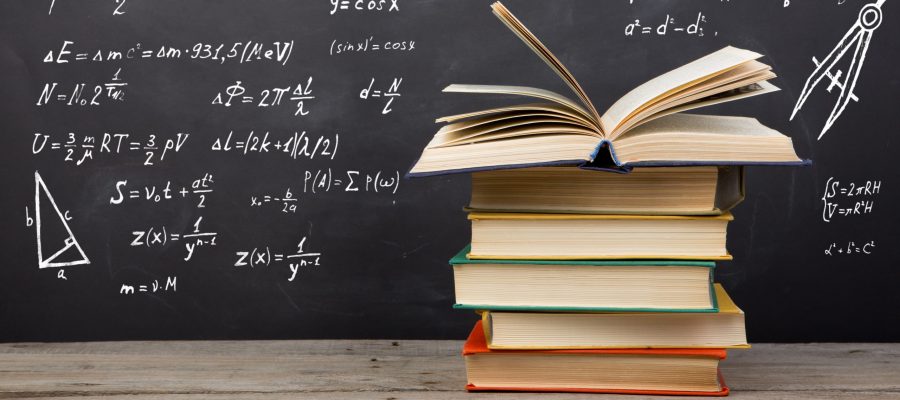
Our Review Process
Don't Waste Your Money is focused on helping you make the best purchasing decision. Our team of experts spends hundreds of hours analyzing, testing, and researching products so you don't have to. Learn more.
Our Picks For The Top Physics & Physical Science Textbooks
Students looking for a general overview of the non-biological sciences will benefit from this book, which is geared toward the non-specialist. The book is packed with information on physical science topics, making it perfect for students who have to take one or more science classes to graduate. Instructors who take a conceptual approach and those w...
Great OverviewYou'll get a primer on physics, chemistry, astrology, geology and more with this book, which is geared toward non-science majors.
This book provides an overview of the most popular physical science topics, including physics, chemistry, astronomy and earth sciences. This text is a less intensive look at physical science than Conceptual Physical Science, Fourth Edition, which is designed for students specializing in the physical sciences.
Customizable for TeachersWith 34 chapters, teachers can pick the lessons they want to focus on with this textbook.
This workbook serves as a supplement to the lessons children learn in grades 5 to 12. You'll get puzzles and problems that help students work through what they’ve learned in physics and chemistry with the goal of helping them retain the information. The activities focus on subjects like metrics, motion, electricity and the periodic table.
Great for HomeschoolersHomeschooling parents will love this physical science workbook, which is designed for students in grades 5 to 12.
This book offers an overview of physics, chemistry, earth science and astronomy, along with quantitative analysis that you can skip if you prefer. It has an accessible writing style to keep you interested while you’re learning. The text is broken up with pictures and even cartoons, making it more engaging than the average science textbook.
Fun PicturesFun cartoons help illustrate the concepts in this physical science textbook.
This is the 14th edition of this guide, which helps students understand the basics of physical science. With this textbook, you get both a descriptive and quantitative view of each of the five divisions of physical science (physics, chemistry, astronomy, meteorology and geology). Students will gather important critical reasoning and problem-solving...
Great for Improving UnderstandingStudents who are struggling to grasp some of the concepts in their physical science courses can benefit from this introductory guide.
Buying Guide
Science is an important part of education, starting in elementary school and going all the way through graduate school. Some students will choose majors that require an intensive study of science, while others will only require a basic course or two to get the foundational concepts down before completing an unrelated degree.
Physical science has four major branches: astronomy, physics, chemistry and the Earth sciences. The Earth sciences include meteorology and geology. In elementary and middle school, students likely get a low-level overview across the spectrum, but as they progress through high school, they can niche down into specialized classes like chemistry and physics.
For teachers who have the freedom to choose the textbooks they use, it’s important to find a book that covers all the topics in an engaging but informative way. Some textbooks come at science from a conceptual problem-solving standpoint, while others emphasize quantitative analysis. You may find some textbooks present multiple approaches, which can help students learn about the different ways of looking at things.
Parents might be interested in purchasing educational materials that can help their children excel in science class. You can find textbooks and workbooks that supplement what your kids are learning in school with fun workbooks and exercises, so students can more easily retain the information they’re learning. It may even motivate them to pursue science as a college major and career.
Why we recommend these physics & physical science textbooks?
Products Considered
Products Analyzed
Expert Reviews Included
User Opinions Analyzed
The Best Bang For Your Buck
Carson Dellosa The 100 Series: Physical Science Workbook
Key Takeawy
This workbook serves as a supplement to the lessons children learn in grades 5 to 12. You'll get puzzles and problems that help students work through what they’ve learned in physics and chemistry with the goal of helping them retain the information. The activities focus on subjects like metrics, motion, electricity and the periodic table.
What to Look For
- What students need to learn about science can vary dramatically from one year to the next. Make sure the textbook you choose is appropriate for the grade level. Some are better for elementary or middle school students while others are more for college-age students.
- Many students won’t need a high-level physical science textbook. If they’ll simply be taking basic science courses toward a degree, a science text designed specifically for an overview of all the areas could be sufficient.
- Teachers likely will want to customize the approach they take in teaching the sciences. State standards could also affect lesson plans. With a more robust science textbook, you can pick and choose the chapters you want to emphasize to customize the learning experience for your classroom.
- You can buy textbooks used or rent them. If e-books aren’t an option, though, make sure the textbook you’re buying is in decent condition. Used textbooks can save you money, but some go through rigorous use before they’re resold.
- It’s a small thing, but pictures and illustrations can make a big difference in a textbook. Pages of text that aren’t broken up tend to become dull after a while, making for difficult reading. If you can find a textbook that combines text with pictures, you might find it’s more engaging, especially for younger minds.
- Some science textbooks have puzzles and interactive exercises that go beyond teaching science. These problem-solving challenges may be related to science on the surface, but they also can help students build problem-solving skills that pay off later in life.
You May Also Enjoy Our Other Reviews
- Robotic Vacuum
- Cordless Vacuums
- Air Mattress
- Drone
- Electric Razor
- Convertible Car Seat
- Infant Car Seat
- Dry Dog Food
- Carpet Cleaners
- Air Fryers
- Laptops
- Home Printers
- Wireless Router
- Streaming Device
- Electric Pressure Cooker
- Chromebook
- Television
- Digital Camera To Capture Special Moments On The Fly
- Smartwatch
- Upright Vacuum


